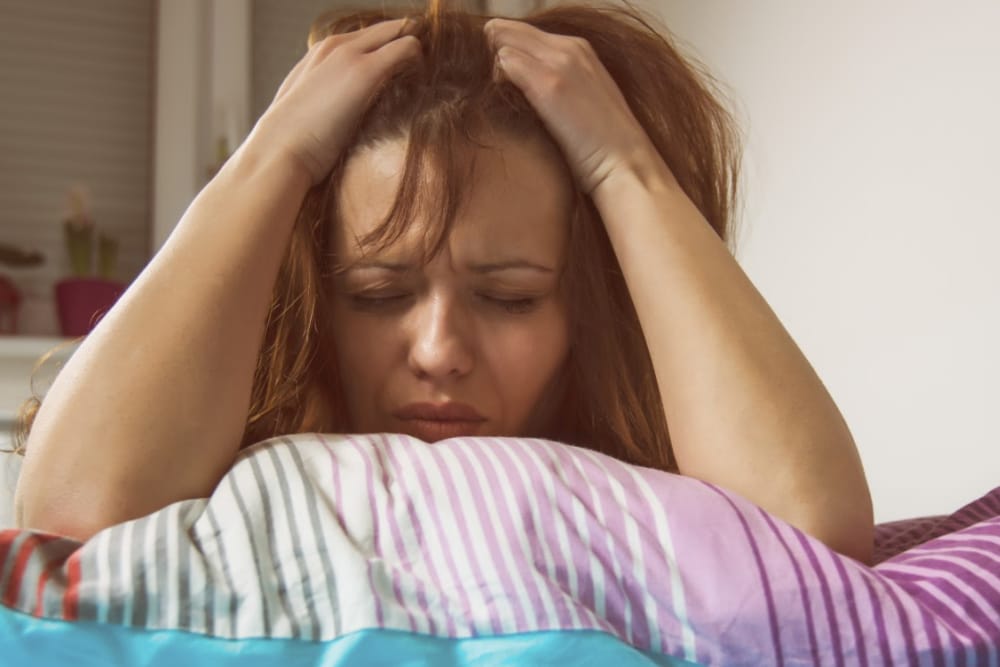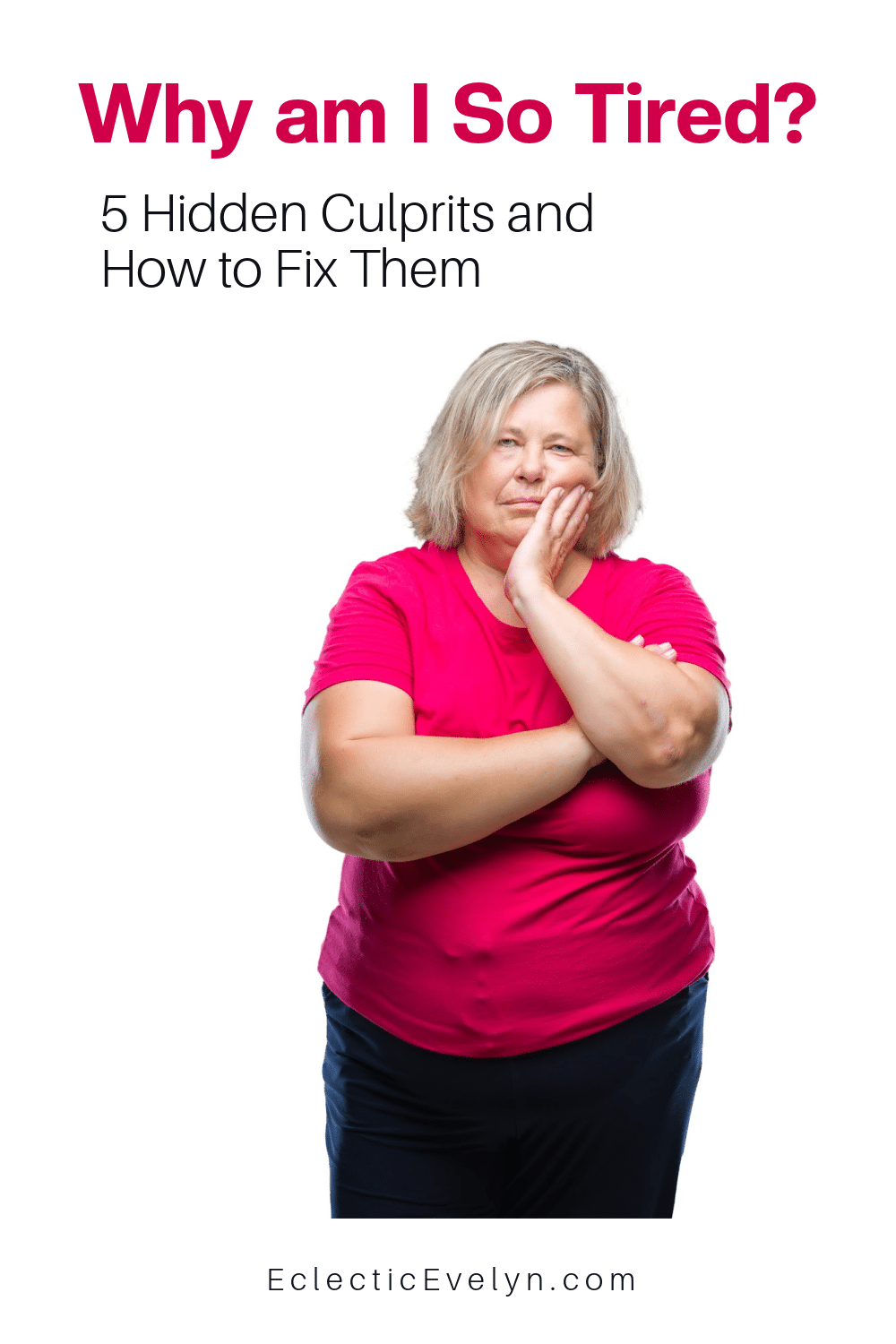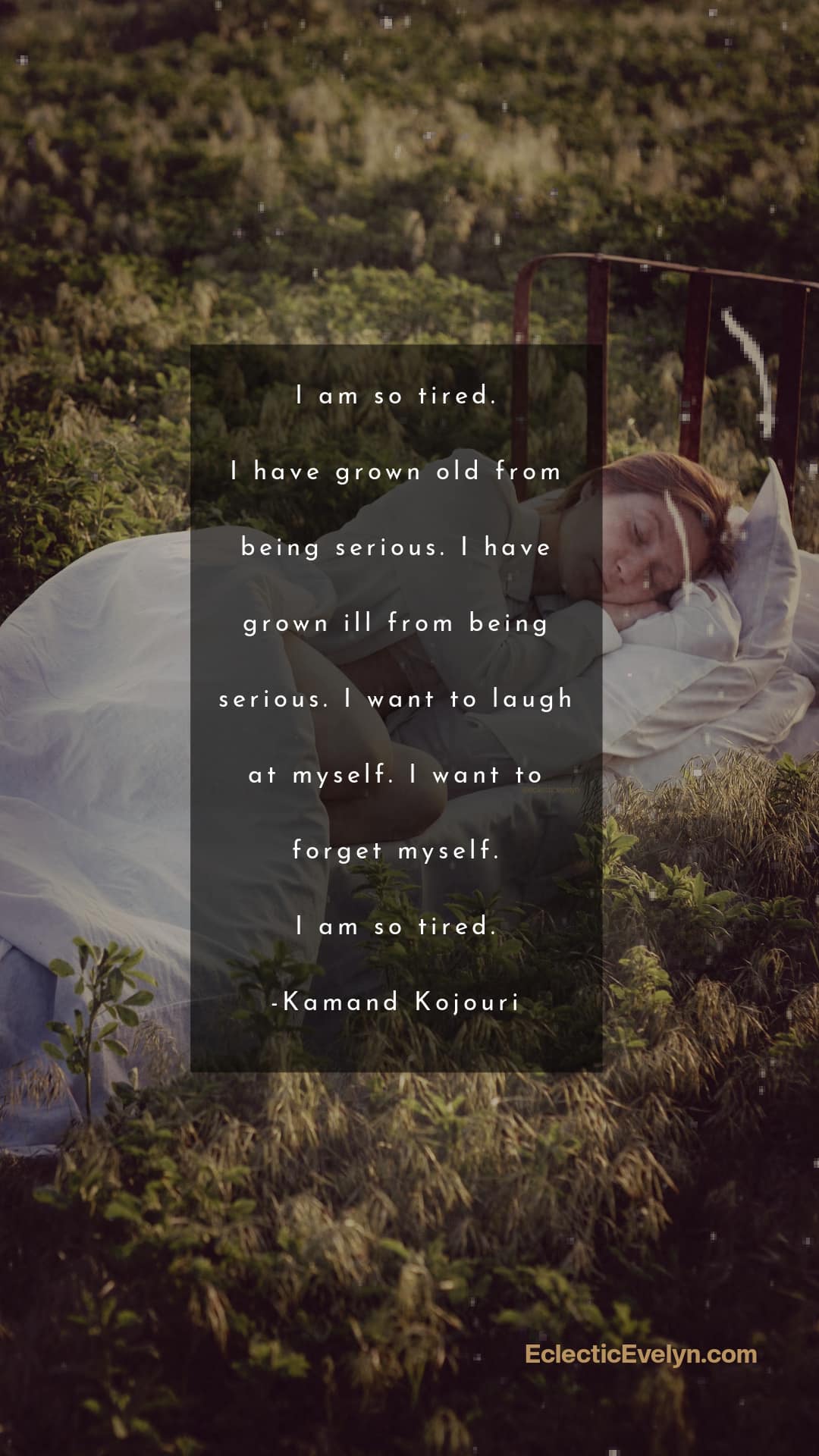How many times a day do you ask yourself why you are feeling so tired? Quality sleep is something many of us take for granted. Teenagers can sleep for hours, and new parents crave the luxury! As we age, sleep can become elusive, and fatigue can strike at any age. Various causes, both environmental and health-related, can lead to this exhaustion. Quality sleep enables you to wake up refreshed every morning, ready to face the day’s challenges.
Fatigue, however, can hugely affect your daily life and impair your functioning. There are many causes of sleeplessness and fatigue, and finding the culprit is half the battle. It’s crucial to tune into your body and make necessary lifestyle changes to prevent yourself from feeling so tired every day. Remember to seek medical advice, especially if the tiredness comes on suddenly or has a major impact on your life.
This article aims to explore five hidden culprits that are making you feel so tired and how to fix them, helping you feel more energized and ready to take on the day.
Hidden Health Issues
Health issues can be a significant cause of constantly feeling so tired. One of the main culprits is anemia, a condition caused by a lack of iron in the blood, impairing the ability of red blood cells to function effectively. Anemia is common in women, especially during their childbearing years due to heavy periods and pregnancy. It can also result from a poor diet, digestive issues, or be a symptom of other health conditions.
If you are feeling exhausted every day even with getting adequate sleep, it’s important to visit your doctor to identify the cause. Iron tablets may be prescribed, and including iron-rich foods like red meat, eggs, and leafy green vegetables in your diet can help. Drinking lots of fluids while taking iron tablets can prevent digestive issues. Nutrient supplements might also provide the nourishment you’re lacking.

Toxins in Your Home
Ever notice that you feel so tired at home but when you are away, you feel more energized? It might be toxins in your home contributing to your feelings of fatigue. Your home should be your safe haven, but modern life has allowed a cocktail of toxins to build up within our homes. Formaldehyde, a chemical used in manufacturing processes to preserve products, can be a hidden source of fatigue. It naturally occurs in the environment, but man-made formaldehyde increases levels dramatically. Breathing in formaldehyde at unsafe levels causes a lack of energy, affects sleep, and impairs the immune system.
Formaldehyde is emitted from carpets, paint, soft furnishings, and clothing, and is even present in toiletries and baby products. To minimize exposure, try to wash items before use and open new packaging outside. Make it a habit to open windows daily to freshen the air.
Other toxins that may affect your energy levels and leave you to feeling so tired include mold, dust, and pollen. Regular cleaning, using air purifiers, and reducing clutter can help minimize these indoor pollutants.
The Impact of Stress on Why You’re Feeling So Tired
Stress is another major contributor to making you feel so tired. Modern life can be high-pressure, and much of it is mental stress. Workplace stress is common and one of the main causes of staff sickness. When stressed, our bodies enter “fight or flight” mode, causing a flood of chemicals and hormones, such as cortisol, to enter our bloodstream. These chemicals are useful in the short term, allowing quick decisions, but problems arise if our bodies remain in this mode for long periods.
Prolonged stress and elevated cortisol levels can lead to a condition known as adrenal fatigue syndrome. This condition occurs when the adrenal glands, which produce cortisol, become overworked and unable to keep up with the constant demand. Adrenal fatigue can cause a variety of symptoms, including chronic tiredness, difficulty sleeping, cravings for salty or sweet foods, and a weakened immune system. Additionally, excessive cortisol buildup can lead to memory problems, anxiety, heart disease, weight gain, and insomnia.
To combat the effects of stress and reduce the risk of adrenal fatigue, consider incorporating stress-reducing activities into your routine.

Your Bed and Bedroom Environment
The environment in which you sleep plays a crucial role in how well you rest. Many bedrooms today serve multiple functions, such as home offices or places to do household chores. It’s important to transform your bedroom into a calm, sleep-promoting oasis each evening in order to get adequate sleep and not feel so tired the next day.
Remove all signs of technology, as screens stimulate the mind rather than calming it. Decorate your room in subtle, calming colors and consider the lighting. A dimmer switch and bedside lamps can create a cozy atmosphere. Blackout blinds help block out external light sources, such as headlights and streetlights.
The bed you sleep on is essential, particularly the mattress and pillows. Mattresses have a lifespan and should be replaced when worn out. Your pillows should support a good sleeping position without straining your neck and spine. Everyone sleeps differently, so test new mattresses before purchase. Opt for natural fiber sheets and bedding, such as cotton, which help regulate your temperature more effectively.
Seasonal Affective Disorder (SAD)
Seasonal Affective Disorder (SAD) is common in the western world due to the lack of daylight in winter months. This disorder is a type of depression that occurs at a specific time of year, usually in the winter, and can make you feel so tired and lethargic. The reduction in sunlight can disrupt your internal clock and lead to a drop in serotonin, a brain chemical that affects mood. It also leads to an increase in melatonin, which regulates sleep, making you feel sleepy, sluggish, and so tired all the time.
Symptoms of SAD include low energy, oversleeping, weight gain, and difficulty concentrating. The lack of sunlight can also lead to a deficiency in vitamin D, contributing to these symptoms.
Thankfully, SAD can be treated effectively with certain supplements and light boxes. Light therapy, which involves sitting in front of a light box or under a special lamp that mimics natural sunlight, can be very effective. Consult your medical practitioner for advice on the best treatment for you. Antidepressants and talk therapy are also common treatments for SAD.
Spending more time outdoors during daylight hours, even in winter, can also help. Regular exercise and maintaining a healthy diet rich in vitamin D can mitigate some of the symptoms. Making your home environment brighter by opening blinds and sitting closer to bright windows can also be beneficial.
Practical Tips to Combat that So Tired Feeling
Establish a Bedtime Routine: Consistency is key when it comes to improving sleep quality. Aim to go to bed and wake up at the same time every day, including weekends. This helps regulate your body’s internal clock, making it easier to fall asleep and wake up naturally. Incorporate relaxing pre-sleep activities like reading, taking a warm bath, or practicing gentle yoga. Avoid stimulating activities and bright screens at least an hour before bed to signal your body that it’s time to wind down.
Limit Caffeine and Alcohol: Caffeine and alcohol can significantly interfere with your sleep cycle. Caffeine, found in coffee, tea, and many soft drinks, is a stimulant that can keep you awake. Try to avoid it at least six hours before bedtime. Alcohol, although it might make you sleepy initially, can disrupt your sleep later in the night and leed to you feeling so tired the next day. Limit your alcohol intake and try not to consume it close to bedtime. Instead, opt for calming herbal teas like chamomile or lavender to help you relax.
Exercise Regularly: Engaging in regular physical activity can greatly enhance your sleep quality and boost your overall energy levels. Aim for at least 30 minutes of moderate exercise most days of the week. This can include activities like walking, swimming, or cycling. Exercise helps to regulate your sleep-wake cycle and reduces stress levels. However, try to avoid vigorous workouts close to bedtime, as they might keep you awake. Instead, schedule intense exercise sessions earlier in the day.
Stay Hydrated: Dehydration is a common yet often overlooked cause of fatigue. Make sure to drink enough water throughout the day to stay hydrated. The general recommendation is about 8 glasses a day, but this can vary depending on individual needs and activity levels. Keep a water bottle with you as a reminder to drink regularly. Avoid drinking too much water close to bedtime to prevent waking up during the night for bathroom trips. Incorporating hydrating foods like fruits and vegetables into your diet can also help.
Manage Stress: Chronic stress can be a significant drain on your energy and interfere with your sleep. Incorporate relaxation techniques into your daily routine to help manage stress levels. Deep breathing exercises, yoga, and mindfulness meditation can be particularly effective. Take time each day to engage in activities you enjoy, whether it’s reading, gardening, or spending time with loved ones. Journaling before bed can also help clear your mind and reduce anxiety, making it easier to fall asleep.
Exposure to Morning Sunlight: Getting natural sunlight early in the morning can help regulate your body’s internal clock and improve your sleep quality. Dr. Andrew Huberman, a neuroscientist, emphasizes the importance of exposure to sunlight within the first hour of waking. This practice helps to set your circadian rhythm, making it easier to feel awake during the day and sleepy at night. Try to spend at least 10-15 minutes outside in the morning light, without sunglasses if possible, to maximize the benefits. If natural sunlight is hard to come by, consider using a light therapy box designed to mimic natural light.
Feeling so tired every day can be frustrating and debilitating. However, by identifying the hidden culprits and incorporating these practical tips into your daily routine, you can stop feeling so tired and enhance your overall energy levels. Be patient with yourself and listen to your body, make necessary lifestyle adjustments, and seek medical advice when needed. Empower yourself with the knowledge and tools to combat fatigue, and reclaim your vitality and zest for life.







I’m tired because I have a chronic illness. I gets old fast! Thanks for posting!
I have PTSD so of course I have crazy insomnia, so I’m always tired. There are some times when my sleep meds refuse to work at all!
I know exactly what you mean.
I feel tired most of the time. I’d say the only time I’m not sleepy is when it’s time to go to bed, you know? I am anemic, so that doesn’t help matters.